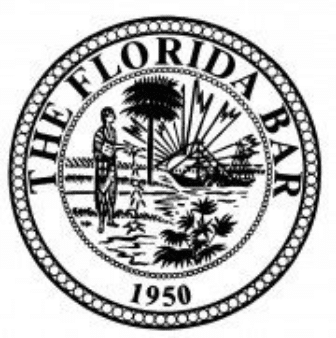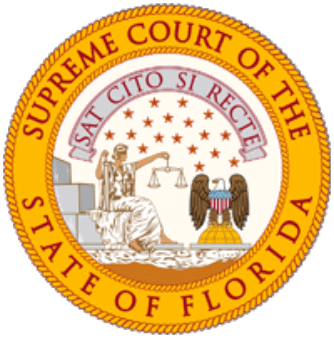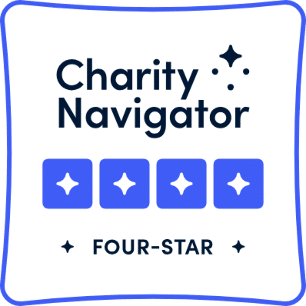- Affordable Housing Advocacy Project: The Foundation* sought to make an impact on the affordable housing crisis for low- and extremely low-income individuals and families through the creation and implementation of a statewide affordable housing project, including regional components. The project undertook systemic advocacy to prevent the loss of affordable housing units and to support the development of new affordable housing units. Grants supported multi-form legal advocacy, including legislative advocacy, administrative advocacy, public policy advocacy and litigation on a statewide and local level.
- Attorney General Mortgage Foreclosure Defense Grant Program: The Office of the Florida Attorney General contacted the Foundation in spring 2009 to ask if the Foundation* would undertake a special grant program to provide legal assistance to low-income Floridians who were in foreclosure proceedings or in danger of foreclosure. Funding for the program came a consent judgment obtained by the Attorney General against Countrywide Financial Corporation.
- Bank of America Community Economic Development Initiative Grants: In the Summer of 2014, Bank of America (BOA) and the Department of Justice (DOJ) came to a $16.65 billion settlement agreement whereby BOA agreed to resolve federal and state claims against BOA and its former and current subsidiaries, including Countrywide Financial Corporation and Merrill Lynch. As part of the settlement, BOA agreed to make donations to state-based Interest on Lawyers’ Trust Account (IOLTA) organizations that provide funds to legal aid organizations. Funds were allocated to each state based upon the federal poverty census data and a formula used by the Legal Services Corporation.
- The Foundation distributed $1.395 million in BOA funds in January 2016 that have been utilized to provide foreclosure prevention legal assistance and community redevelopment assistance. The Foundation* distributed an additional $1M in March 2017 that is being utilized to provide community redevelopment assistance.
- The Foundation distributed $6.371 million in BOA funds in 2018 to 26 legal aid organizations for specific projects. Project examples include holistic assistance to immigrants who are victims of domestic violence, facilitating veteran entrepreneurship, and creation of a medical legal partnership in a rural community.
- Engle Grant Program: The Engle Grant Program provided funding to qualified legal aid organizations in the Middle District of Florida to assist litigants in obtaining representation in court. Recipients of this grant funding provided direct legal services to clients in litigation matters, either active or in pre-suit. Grants totaling $3,548,987 were awarded in October 2019.
- Emergency Haitian Temporary Protected Status: Grants for the support of programs providing free civil legal assistance to Haitian immigrants with Temporary Protected Status applications after the 2010 Haiti earthquake disaster.
- Equal Justice Works (EJW) Fellowships: Matching grants for fellowships through Washington, D.C.-based Equal Justice Works (EJW). Fellows were hosted by grantees. Fellows’ two-year civil legal aid projects provided impoverished groups with the representation and implementation needed to make progress in their communities. Having invested more than $4 million in 80+ Fellowships since 1999, The Florida Bar Foundation was one of the largest funders of the Equal Justice Works Fellowship program.
- Extraordinary Need/Special Project Funding: The Foundation* funded special and/or ad hoc requests.
- Florida Access to Civil Legal Assistance (FACLA) Grants: The Foundation* distributed funds to qualified grantees when the state of Florida allocated civil legal aid funding in its budget through the Florida Access to Civil Legal Assistance Act.
- General Support/Legal Assistance for the Poor: The Foundation* made grants for general support of the delivery of legal assistance for the poor in Florida. In order to ensure that grant funds were distributed on a fair basis, funding of local programs took into account the number of poor people in each region under Florida’s legal services plan.
- Law School Civil Legal Clinic Grants: Law school clinical programs play an integral role in providing essential legal assistance to low-income Floridians. This program was suspended on Dec. 6, 2024. Funded clinics:
- involve law students in the provision of civil legal assistance with a focus on economic development in impoverished local communities;;
- provide an in-depth educational experience in representing low-income Floridians and working with individual clients and client groups in civil matters; and
- encourage law students to pursue public interest careers representing the poor and/or promote a commitment to pro bono representation of low-income Floridians.
- One Time Grants: The Foundation* allocated money to respond to applications for one time grants to general support grantees to address needs which were not ongoing or recurring as a part of grantee operations such as technology hardware and updates, new or replacement of outdated office equipment or furnishings, office improvements or purchase, mortgage payoff or principal balance prepayments and special program events.
- Pilot Pro Bono Grants Program: The primary purpose of pilot pro bono grants was to expand and improve pro bono legal services by Legal Assistance for the Poor grantees of the Foundation*. An additional purpose was to demonstrate successful strategies and techniques to address barriers and challenges to the expansion and improvement of pro bono services and the utilization of pro bono attorneys.
- Pro Bono Transformation and Innovation Grants: The purpose of the Pro Bono Transformation and Innovation Grants was to develop and enhance pro bono programs that serve low-income Floridians to improve the reach, quality, and effectiveness of the services clients receive. The Foundation* provided grants for efforts that were innovative (new approaches or the adaptation of existing, successful approaches) and replicable (the innovation, if successful, could likely be implemented by other legal aid programs); or seeking to replicate successful and effective pro bono models.
- Public Service Fellowships: The Public Service Fellows Grant Program provided funds to law schools to support Florida law student internships at public interest agencies providing legal services and to promote awareness of the importance of public service activities by lawyers. The purpose of this grant program was to promote pro bono legal services by members of the legal profession, provide law students with direct involvement in public service legal assistance activities, and promote the concept of public service legal work on law school campuses generally.
- Regional Grants: This competitive grant program was available to the seven regions of Florida’s Legal Services Plan. Projects were collaborative efforts with significant participation by at least two non-statewide Foundation* grantees serving the region. Projects addressed a significant unmet client need in the region or materially improved the delivery of legal assistance in the region. Preference was given to projects that impacted a large number of clients and/or a significant group of clients who faced extraordinary lack of access to justice issues, and projects that were capable of replication in other regions.
- Salary Supplementation: The Foundation* sought to improve the recruitment, performance and retention of quality legal aid attorneys in Florida by offering salary supplementation grants that improved salaries and the legal aid work environment allowing legal aid lawyers to pursue careers in advocacy for low-income families and communities while meeting family needs and having opportunities to develop their career capabilities to the fullest.
- Small Programs Special Needs: This competitive grant program recognized and supported small but stable specialized legal assistance programs serving special needs clients which were not otherwise supported by a Foundation* grant.
- Statewide Special Needs Grants: These grants were designed to strengthen the services provided by statewide legal assistance programs, particularly in the areas of legislative and administrative advocacy, mentoring to local program advocates, impact litigation and leadership and advocacy in assisting special needs populations such as institutionalized persons, farmworkers, children and immigrants.
- Voluntary Bar Association Community Service Grants: These were one-time grants of up to $5,000 to voluntary bar associations in Florida to promote new or significant improvement in existing charitable, community-service projects. Grants were awarded to support activities to improve the operation of the civil or criminal justice systems and for education, outreach or service-delivery projects which enhance the administration of justice in Florida.
*In 2023, The Florida Bar Foundation changed its name to FFLA.




